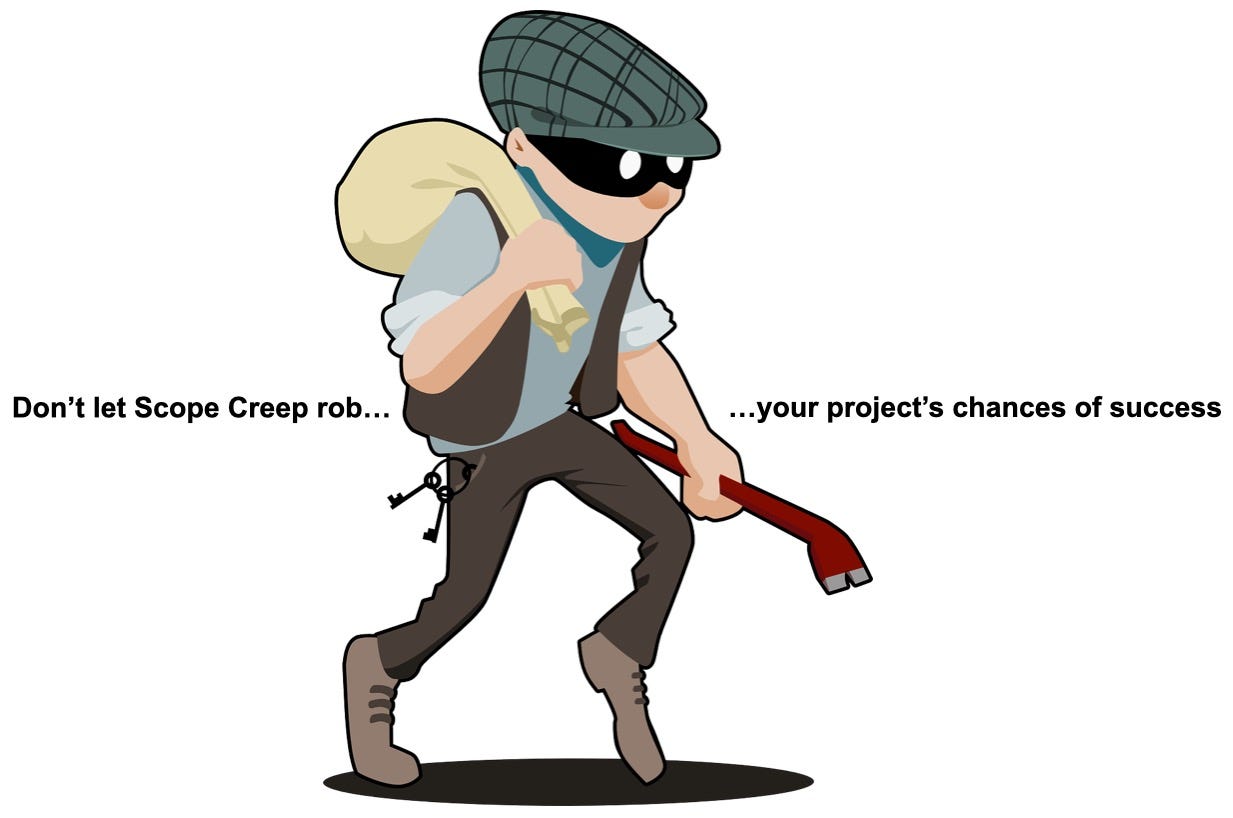Don’t Be A Creep!
Pushing back on proposed changes to project scope
“Better is the enemy of good enough.” —Sergey Gorshkov
In the field of project management, it's not uncommon for responsible project managers to have to decline requests from their team members. This can be a difficult task, as team members may be passionate and emotionally invested in their ideas.
For example, during a recent telescope project that I worked on, a scientist and an engineering manager approached me with an argument for purchasing an additional optical-grade mirror to improve the observatory's functionality. They presented their case, citing that the cost was relatively low (around 0.01% of the overall project budget) and that it would enhance the observatory's delivered performance. The optic would add increased functionality, serve as a spare, and it would improve operations once we handed over the observatory to the scientific user community. For a relatively small cost increase, we could get a significant performance return on investment.
Despite these persuasive arguments, I said no to their request.
The reason I rejected the proposed addition was because it was a want, not a need. It was neither part of our formal remit, nor was it something that the customer asked for. Adding the optic was an example of scope creep.
Scope creep is a common problem in project management. Left unchecked, scope creep (and it’s evil twin of gold-plating specifications) can weaken a project. A few dollars here, a few dollars there… and suddenly, you’re over budget, behind schedule, and working on things at aren’t covered in your original charter.
As project managers, our primary objective is to deliver our pre-defined product scope within the approved timeframe and budget, while meeting pre-established quality requirements. This means that any additions to our agreed-upon scope are, by definition, not acceptable. While it would have been nice to have the extra mirror, it was not necessary for the project's success.
I advised the scientist and engineering manager that they were welcome to submit a formal change request to the change control board for consideration. But unless there was a more compelling reason in that CR that went beyond simply wanting to make the observatory “better,” their request would likely be rejected. Why? Because better is the enemy of good enough. Adding unnecessary/un-asked-for improvements or changes can cause delays, overspending, and ultimately jeopardize the success of the project.
As project managers, it's essential to stay vigilant and ensure that all project changes are necessary and within scope. Saying no to team members may not always be easy, but it's a critical part of maintaining project success.


